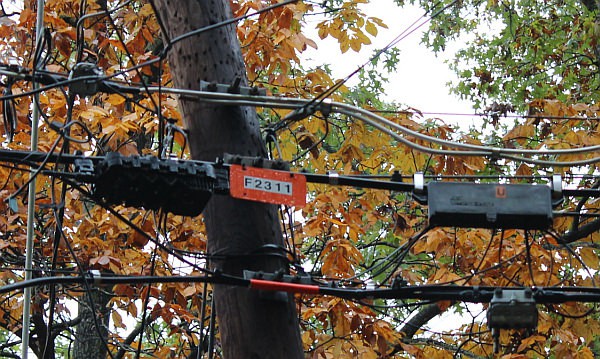 AT&T wants to pass 12.9 million homes with its fiber to the home upgrade, but is upset about the price of those doing the work.
AT&T wants to pass 12.9 million homes with its fiber to the home upgrade, but is upset about the price of those doing the work.
In an effort to cut costs, Fierce Telecom reports AT&T is discontinuing the practice of having two technicians prepare a home or business for fiber — one working outdoors on the fiber drop to the home and the other installing inside equipment like wiring, set-top boxes and gateways. Now one AT&T technician or subcontractor is expected to do it all.
“Originally we had a technician who placed the fiber drop and ONT [optical network terminal] on the side of the home and then they turned it over a technician inside the house that get the customer going with their services,” said Kent McCammon, lead member of technical staff at AT&T Labs. “The desire was to have what was formerly called the inside technicians perform the fiber drop, but in order to do that we had to train technicians who were not using to dealing with fiber.”
To simplify training and cut costs, AT&T has been using field installed mechanical connections and pre-connectorized fiber drops, which means the installer no longer has to manually splice fiber cable connections, saving time. But as a result the technicians can no longer test the actual performance of the fiber connection to the home.
“When the technicians did a mechanical connection, you don’t have the visibility like you do with a fusion splicer where you can actually see it’s a good connection,” McCammon said. “[Once] the ONT’s green light turned on […] they left whether it was well done or not.”
That has been a risk AT&T is willing to take to speed expansion of fiber service to more of its customers, but it has also increased the number of service calls when customers are left with substandard service.
“In our recent analysis we did a few weeks ago, we’re seeing lines with variable optical power,” McCammon said, a sure sign there is a technical fault. “It’s 5% of the areas where we have installed fiber so 95% of the cases have a good connection.”
In most cases, McCammon said problems are usually the result of a bad connector and when it is replaced, power levels return to normal. It’s up to customers to notice a problem and call it in for now, but AT&T is studying whether optical time-domain reflectometer (OTDR) capability could be deployed to detect problems like air gaps or high reflection points inside the fiber.
AT&T is also reviewing how future fiber technologies can co-exist with AT&T’s current GPON fiber network. The technologies that can currently overlap AT&T’s GPON network are XGS-PON and NG-PON2. AT&T is currently reviewing XGS-PON to see if it would be suitable to deploy symmetrical 10Gbps service in the future.
“We’re getting started XGS-PON,” McCammon said. “We have it in the lab and we’re starting the IT work on that system right now, and unless something changes, that’s where we’re headed after GPON for consumer and potentially for business.”


 Subscribe
Subscribe







